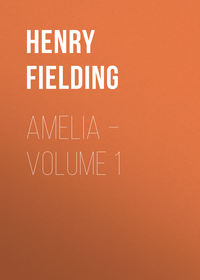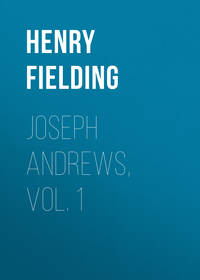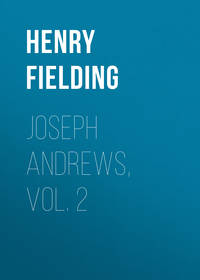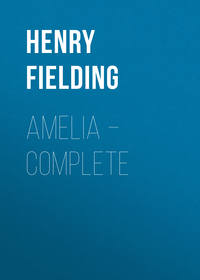 полная версия
полная версияThe Works of Henry Fielding, vol. 12
Sixthly, you are to avoid knowingly mentioning anything which may revive in any person the remembrance of some past accident, or raise an uneasy reflection on a present misfortune or corporal blemish. To maintain this rule nicely, perhaps, requires great delicacy; but it is absolutely necessary to a well-bred man. I have observed numberless breaches of it; many, I believe, proceeding from negligence and inadvertency; yet I am afraid some may be too justly imputed to a malicious desire of triumphing in our own superior happiness and perfections; now, when it proceeds from this motive it is not easy to imagine anything more criminal.
Under this head I shall caution my well-bred reader against a common fault, much of the same nature; which is, mentioning any particular quality as absolutely essential to either man or woman, and exploding all those who want it. This renders every one uneasy who is in the least self-conscious of the defect. I have heard a boor of fashion declare in the presence of women remarkably plain, that beauty was the chief perfection of that sex, and an essential without which no woman was worth regarding; a certain method of putting all those in the room, who are but suspicious of their defect that way, out of countenance.
I shall mention one fault more, which is, not paying a proper regard to the present temper of the company, or the occasion of their meeting, in introducing a topic of conversation, by which as great an absurdity is sometimes committed, as it would be to sing a dirge at a wedding, or an epithalamium at a funeral.
Thus I have, I think, enumerated most of the principal errors which we are apt to fall into in conversation; and though, perhaps, some particulars worthy of remark may have escaped me, yet an attention to what I have here said may enable the reader to discover them. At least I am persuaded that, if the rules I have now laid down were strictly observed, our conversation would be more perfect, and the pleasure resulting from it purer and more unsullied, than at present it is.
But I must not dismiss this subject without some animadversions on a particular species of pleasantry, which, though I am far from being desirous of banishing from conversation, requires, most certainly, some reins to govern, and some rule to direct it. The reader may perhaps guess I mean raillery; to which I may apply the fable of the lap-dog and the ass; for, while in some hands it diverts and delights us with its dexterity and gentleness, in others, it paws, daubs, offends, and hurts.
The end of conversation being the happiness of mankind, and the chief means to procure their delight and pleasure, it follows, I think, that nothing can conduce to this end which tends to make a man uneasy and dissatisfied with himself, or which exposes him to the scorn and contempt of others. I here except that kind of raillery, therefore, which is concerned in tossing men out of their chairs, tumbling them into water, or any of those handicraft jokes which are exercised on those notable persons commonly known by the name of buffoons; who are contented to feed their belly at the price of their br – ch, and to carry off the wine and the p – ss of a great man together. This I pass by, as well as all remarks on the genius of the great men themselves, who are (to fetch a phrase from school, a phrase not improperly mentioned on this occasion) great dabs at this kind of facetiousness.
But, leaving all such persons to expose human nature among themselves, I shall recommend to my well-bred man, who aims at raillery, the excellent character given of Horace by Persius: —
Omne vafer vitium ridenti Flaccus amicoTangit, et admissus circum praecordia ludit,Callidus excusso populum suspendere naso.Thus excellently rendered by the late ingenious translator of that obscure author: —
Yet could shrewd Horace, with disportive wit,Rally his friend, and tickle while he bit;Winning access, he play'd around the heart,And, gently touching, prick'd the tainted part.The crowd he sneer'd; but sneer'd with such a grace,It pass'd for downright innocence of face.The raillery which is consistent with good-breeding is a gentle animadversion on some foible; which, while it raises a laugh in the rest of the company, doth not put the person rallied out of countenance, or expose him to shame and contempt. On the contrary, the jest should be so delicate that the object of it should be capable of joining in the mirth it occasions.
All great vices therefore, misfortunes, and notorious blemishes of mind or body, are improper subjects of raillery. Indeed, a hint at such is an abuse and an affront which is sure to give the person (unless he be one shameless and abandoned) pain and uneasiness, and should be received with contempt, instead of applause, by all the rest of the company.
Again; the nature and quality of the person are to be considered. As to the first, some men will not bear any raillery at all. I remember a gentleman who declared he never made a jest, nor would ever take one. I do not, indeed, greatly recommend such a person for a companion; but at the same time, a well-bred man, who is to consult the pleasure and happiness of the whole, is not at liberty to make any one present uneasy. By the quality, I mean the sex, degree, profession, and circumstances; on which head I need not be very particular. With regard to the two former, all raillery on ladies and superiors should be extremely fine and gentle; and with respect to the latter, any of the rules I have above laid down, most of which are to be applied to it, will afford sufficient caution.
Lastly, a consideration is to be had of the persons before whom we rally. A man will be justly uneasy at being reminded of those railleries in one company which he would very patiently bear the imputation of in another. Instances on this head are so obvious that they need not be mentioned. In short, the whole doctrine of raillery is comprized in this famous line: —
"Quid de quoque viro, et cui dicas, saepe caveto."
"Be cautious what you say, of whom and to whom"
And now, methinks, I hear some one cry out that such restrictions are, in effect, to exclude all raillery from conversation; and, to confess the truth, it is a weapon from which many persons will do wisely in totally abstaining; for it is a weapon which doth the more mischief by how much the blunter it is. The sharpest wit therefore is only to be indulged the free use of it, for no more than a very slight touch is to be allowed; no hacking, nor bruising, as if they were to hew a carcase for hounds, as Shakspeare phrases it.
Nor is it sufficient that it be sharp, it must be used likewise with the utmost tenderness and good-nature; and, as the nicest dexterity of a gladiator is shewn in being able to hit without cutting deep, so is this of our railler, who is rather to tickle than wound.
True raillery indeed consists either in playing on peccadilloes, which, however they may be censured by some, are not esteemed as really blemishes in a character in the company where they are made the subject of mirth; as too much freedom with the bottle, or too much indulgence with women, &c.
Or, secondly, in pleasantly representing real good qualities in a false light of shame, and bantering them as ill ones. So generosity may be treated as prodigality; oeconomy as avarice; true courage as foolhardiness; and so of the rest.
Lastly, in ridiculing men for vices and faults which they are known to be free from. Thus the cowardice of A – le, the dulness of Ch – d, the unpoliteness of D – ton, may be attacked without danger of offence; and thus Lyt – n may be censured for whatever vice or folly you please to impute to him.
And, however limited these bounds may appear to some, yet, in skilful and witty hands, I have known raillery, thus confined, afford a very diverting, as well as inoffensive, entertainment to the whole company.
I shall conclude this essay with these two observations, which I think may be clearly deduced from what hath been said.
First, that every person who indulges his ill-nature or vanity at the expense of others, and in introducing uneasiness, vexation, and confusion into society, however exalted or high-titled he may be, is thoroughly ill-bred.
Secondly, that whoever, from the goodness of his disposition or understanding, endeavours to his utmost to cultivate the good-humour and happiness of others, and to contribute to the ease and comfort of all his acquaintance, however low in rank fortune may have placed him, or however clumsy he may be in his figure or demeanour, hath, in the truest sense of the word, a claim to good-breeding.
* * * * *THE TRUE PATRIOT
No. 13.
TUESDAY, JANUARY 28, 1746Qui non recte instituunt atque erudiunt liberos, non solum liberis sed et reipublicae faciunt injuriam. – CICERO.
MR ADAMS having favoured me with a second letter, I shall give it the public without any apology. If anything in it should at first a little shock those readers who know the world better, I hope they will make allowances for the ignorance and simplicity of the writer.
TO THE TRUE PATRIOTMY WORTHY FRIEND, – I am concerned to find, by all our public accounts, that the rebels still continue in the land. In my last I evidently proved that their successes were owing to a judgment denounced against our sins, and concluded with some exhortations for averting the Divine anger by the only methods which suggested themselves to my mind. These exhortations, by the event, I perceive have not had that regard paid to them I had reason to expect. Indeed, I am the more confirmed in this conjecture, by a lad whom I lately met at a neighbouring baronet's, where I sojourned the two last days of the year, with my good friend Mr Wilson.
This lad, whom I imagined to have been come from school to visit his friends for the holidays (for though he is perhaps of sufficient age, I found, on examination, he was not yet qualified for the university), is, it seems, a man sui juris; and is, as I gather from the young damsels, Sir John's daughters, a member of the society of bowes. I know not whether I spell the word right; for I am not ashamed to say I neither understand its etymology nor true import, as it hath never once occurred in any lexicon or dictionary which I have yet perused.
Whatever this society may be, either the lad with whom I communed is an unworthy member, or it would become the government to put it down by authority; for he uttered many things during our discourse for which I would have well scourged any of the youth under my care.
He had not long entered the chamber before he acquainted the damsels that he and his companions had carried the opera, in opposition to the puts; by which I afterwards learnt he meant all sober and discreet persons. "And fags!" says he (I am afraid, though, he made use of a worse word), "we expected the bishops would have interfered; but if they had we should have silenced them." I then thought to myself, Strippling, if I had you well horsed on the back of another lad, I would teach you more reverence to their lordships.
This opera, I am informed, is a diversion in which a prodigious sum of money, more than is to be collected out of twenty parishes, is lavished away on foreign eunuchs and papists, very scandalous to be suffered at any time, especially at a season when both war and famine hang over our heads.
[Illustration: "He acquainted the damsels that he and his companions had carried the opera."]
During the whole time of our repast at dinner the young gentleman entertained us with an account of several drums and routs at which he had been present. These are, it seems, large congregations of men and women, who, instead of assembling together to hear something that is good, nay, or to divert themselves with gambols, which might be allowed now and then in holiday times, meet for no other purpose but that of gaming, for a whole guinea and much more at a stake. At this married women sit up all night, nay, sometimes till one or two in the morning, neglect their families, lose their money, and some, Mr Wilson says, have been suspected of doing even worse than that. Yet this is suffered in a Christian kingdom; nay (quod prorsus incredibile est), the holy sabbath is, it seems, prostituted to these wicked revellings; and card-playing goes on as publickly then as on any other day; nor is this only among the young lads and damsels, who might be supposed to know no better, but men advanced in years, and grave matrons, are not ashamed of being caught at the same pastime. O tempora! O mores!
When grace was said after meat, and the damsels departed, the lad began to grow more wicked. Sir John, who is an honest Englishman, hath no other wine but that of Portugal. This our bowe could not drink; and when Sir John very nobly declared he scorned to indulge his palate with rarities, for which he must furnish the foe with money to carry on a war with the nation, the stripling replied, "Rat the nation!" (God forgive me for repeating such words) "I had rather live under French government than be debarred from French wine." Oho, my youth! if I had you horsed, thinks I again. – But, indeed, Sir John well scourged him with his tongue for that expression, and I should have hoped he had made him ashamed, had not his subsequent behaviour shewn him totally void of grace. For when Sir John asked him for a toast, which you know is another word for drinking the health of one's friend or wife, or some person of public eminence, he named the health of a married woman, filled out a bumper of wine, swore he would drink her health in vinegar, and at last openly profest he would commit adultery with her if he could. Proh pudor! Nay, and if such a sin might admit of any aggravation, she is it seems a lady of very high degree, et quidem, the wife of a lord.
Et dies et charta deficerent si omnia vellem percurrere, multa quldem impura et impudica quae memorare nefas, recitavit. Nor is this youth, it seems, a monster or prodigy in the age he lives; on the contrary, I am told he is an exemplar only of all the rest.
But I now proceed to what must surprize you. After he had spent an hour in rehearsing all the vices to which youth have been ever too much addicted, and shewn us that he was possessed of them all —Ut qui impudicus, adulter, ganeo, alea, manu, ventre, pene, bona patria laceraverat, he began to enter upon politics:
O proceres censore opus an haruspice nobis!
This stripling, this bowe, this rake, discovered likewise all the wickedness peculiar to age, and that he had not, with those vices which proceed from the warmth of youth, one of the virtues which we should naturally expect from the same sanguine disposition. He shewed us that grey hairs could add nothing but hypocrisy to him; for he avowed public prostitution, laughed at all honour, public spirit, and patriotism; and gave convincing proofs that the most phlegmatic old miser upon earth could not be sooner tempted with gold to perpetrate the most horrid iniquities than himself.
Whether this youth be (quod vix credo) concerned himself in the public weal, or whether he have his information from others, I hope he greatly exceeded the truth in what he delivered on this subject; for was he to be believed, the conclusion we must draw would be, that the only concern of our great men, even at this time, was for places and pensions; that, instead of applying themselves to renovate and restore our sick and drooping commonweal, they were struggling to get closest to her heart, and, like leeches, to suck her last drop of vital blood.
I hope, however, better things, and that this lad deserves a good rod as well for lying as for all his other iniquity; and if his parents do not take care to have it well laid on, I can assure them they have much to answer for.
Mr Wilson now found me grow very uneasy, as, indeed, I had been from the beginning, nor could anything but respect to the company have prevented me from correcting the boy long before; he therefore endeavoured to turn the discourse, and asked our spark when he left London? To which he answered, the Wednesday before. "How, sir?" said I; "travel on Christmas Day?" "Was it so?" says he; "fags! that's more than I knew; but why not travel on Christmas Day as well as any other?" "Why not?" said I, lifting my voice, for I had lost all patience; "was you not brought up in the Christian religion? Did you never learn your catechism?" He then burst out into an unmannerly laugh, and so provoked me, that I should certainly have smote him, had I not laid my crabstick down in the window, and had not Mr Wilson been fortunately placed between us. "Odso! Mr Parson," says he, "are you there? I wonder I had not smoked you before." "Smoke me!" answered I, and at the same time leaped from my chair, my wrath being highly kindled. At which instant a jackanapes, who sat on my left hand, whipped my peruke from my head, which I no sooner perceived than I porrected him a remembrance over the face, which laid him sprawling on the floor. I was afterwards concerned at the blow, though the consequence was only a bloody nose, and the lad, who was a companion of the other's, and had uttered many wicked things, which I pretermitted in my narrative, very well deserved correction.
A bustle now arose, not worth recounting, which ended in my departure with Mr Wilson, though we had purposed to tarry there that night.
In our way home we both lamented the peculiar hardiness of this country, which seems bent on its own destruction, nor will take warning by any visitation, till the utmost wrath of Divine vengeance overtakes it.
In discoursing upon this subject, we imputed much of the present profligacy to the notorious want of care in parents in the education of youth, who, as my friend informs me, with very little school-learning, and not at all instructed (ne minime quidem imbuti) in any principles of religion, virtue, and morality, are brought to the great city, or sent to travel to other great cities abroad, before they are twenty years of age, where they become their own masters, and enervate both their bodies and minds with all sorts of diseases and vices before they are adult.
I shall conclude with a passage in Aristotle's Politics, lib. viii. cap. I. "[Greek text]" Which, for the sake of women, and those few gentlemen who do not understand Greek, I have rendered somewhat paraphrastically in the vernacular: – "No man can doubt but that the education of youth ought to be the principal care of every legislator; by the neglect of which, great mischief accrues to the civil polity in every city."
I am, while you write like an honest man and a good Christian, your hearty friend and well-wisher,
ABRAHAM ADAMS.* * * * *THE COVENT-GARDEN JOURNAL
No. 10.
TUESDAY, FEBRUARY 4, 1752At nostri proavi Plautinos et numeros, etLaudavere sales; nimium patienter utrumque,Ne dicam stulte, mirati.MODERNISEDIn former times this tasteless, silly townToo fondly prais'd Tom D'Urfey and Tom Brown.THE present age seems pretty well agreed in an opinion, that the utmost scope and end of reading is amusement only; and such, indeed, are now the fashionable books, that a reader can propose no more than mere entertainment, and it is sometimes very well for him if he finds even this, in his studies.
Letters, however, were surely intended for a much more noble and profitable purpose than this. Writers are not, I presume, to be considered as mere jack-puddings, whose business it is only to excite laughter: this, indeed, may sometimes be intermixed and served up with graver matters, in order to titillate the palate, and to recommend wholesome food to the mind; and for this purpose it hath been used by many excellent authors: "for why," as Horace says, "should not any one promulgate truth with a smile on his countenance?" Ridicule indeed, as he again intimates, is commonly a stronger and better method of attacking vice than the severer kind of satire.
When wit and humour are introduced for such good purposes, when the agreeable is blended with the useful, then is the writer said to have succeeded in every point. Pleasantry (as the ingenious author of Clarissa says of a story) should be made only the vehicle of instruction; and thus romances themselves, as well as epic poems, may become worthy the perusal of the greatest of men: but when no moral, no lesson, no instruction, is conveyed to the reader, where the whole design of the composition is no more than to make us laugh, the writer comes very near to the character of a buffoon; and his admirers, if an old Latin proverb be true, deserve no great compliments to be paid to their wisdom.
After what I have here advanced I cannot fairly, I think, be represented as an enemy to laughter, or to all those kinds of writing that are apt to promote it. On the contrary, few men, I believe, do more admire the works of those great masters who have sent their satire (if I may use the expression) laughing into the world. Such are the great triumvirate, Lucian, Cervantes, and Swift. These authors I shall ever hold in the highest degree of esteem; not indeed for that wit and humour alone which they all so eminently possest, but because they all endeavoured, with the utmost force of their wit and humour, to expose and extirpate those follies and vices which chiefly prevailed in their several countries. I would not be thought to confine wit and humour to these writers. Shakspeare, Moliere, and some other authors, have been blessed with the same talents, and have employed them to the same purposes. There are some, however, who, though not void of these talents, have made so wretched a use of them, that, had the consecration of their labours been committed to the hands of the hangman, no good man would have regretted their loss; nor am I afraid to mention Rabelais, and Aristophanes himself, in this number. For, if I may speak my opinion freely of these two last writers, and of their works, their design appears to me very plainly to have been to ridicule all sobriety, modesty, decency, virtue, and religion, out of the world. Now, whoever reads over the five great writers first mentioned in this paragraph, must either have a very bad head or a very bad heart if he doth not become both a wiser and a better man.
In the exercise of the mind, as well as in the exercise of the body, diversion is a secondary consideration, and designed only to make that agreeable which is at the same time useful, to such noble purposes as health and wisdom. But what should we say to a man who mounted his chamber-hobby, or fought with his own shadow, for his amusement only? how much more absurd and weak would he appear who swallowed poison because it was sweet?
How differently did Horace think of study from our modern readers!
Quid verum atque decens curo et rogo, et omnis in hoc sum:
Condo et compono, quae mox depromere possim.
"Truth and decency are my whole care and enquiry. In this study I am entirely occupied; these I am always laying up, and so disposing that I can at any time draw forth my stores for my immediate use." The whole epistle, indeed, from which I have paraphrased this passage, is a comment upon it, and affords many useful lessons of philosophy.
When we are employed in reading a great and good author, we ought to consider ourselves as searching after treasures, which, if well and regularly laid up in the mind, will be of use to us on sundry occasions in our lives. If a man, for instance, should be overloaded with prosperity or adversity (both of which cases are liable to happen to us), who is there so very wise, or so very foolish, that, if he was a master of Seneca and Plutarch, could not find great matter of comfort and utility from their doctrines? I mention these rather than Plato and Aristotle, as the works of the latter are not, I think, yet completely made English, and, consequently, are less within the reach of most of my countrymen.
But perhaps it may be asked, will Seneca or Plutarch make us laugh? Perhaps not; but if you are not a fool, my worthy friend, which I can hardly with civility suspect, they will both (the latter especially) please you more than if they did. For my own part, I declare, I have not read even Lucian himself with more delight than I have Plutarch; but surely it is astonishing that such scribblers as Tom Brown, Tom D'Urfey, and the wits of our age, should find readers, while the writings of so excellent, so entertaining, and so voluminous an author as Plutarch remain in the world, and, as I apprehend, are very little known.









